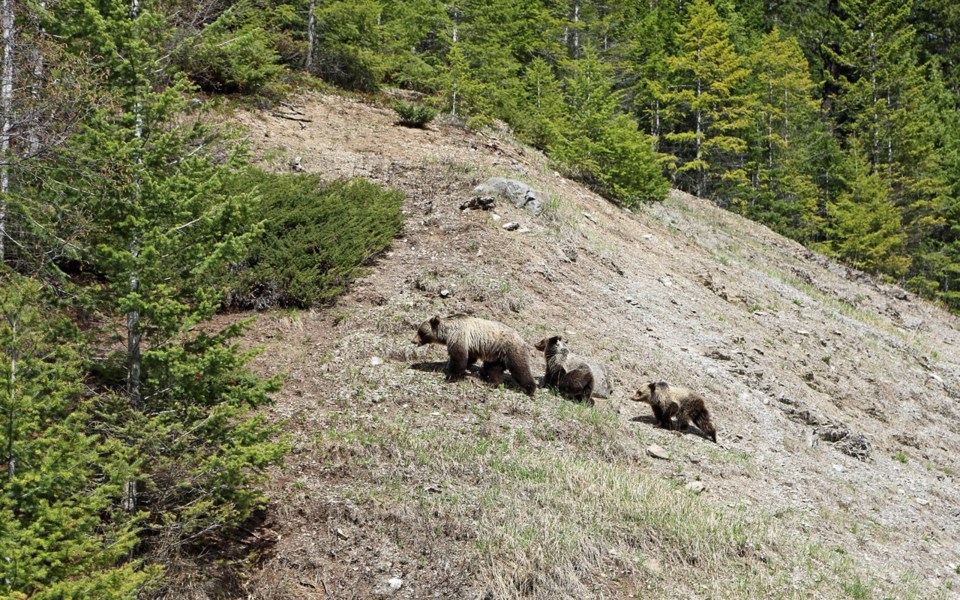As Whistler's alpine trail network is only set to grow busier after its first full year being open to the public, the Resort Municipality of Whistler (RMOW) is developing a plan to mitigate potential conflict with grizzly bears.
The RMOW officially opened a series of hiking and biking trails on Mount Sproatt and Rainbow Mountain last July.
By September, the province had temporarily closed the alpine trail network after two separate groups of hikers had a close call with a grizzly near Rainbow Lake.
"Because there was no other plan in place, it was either all (the trails were kept) open or they were all closed," explained Heather Beresford, the RMOW's manager of environmental stewardship, in a presentation to mayor and council on Tuesday, April 16. "We decided it was necessary to put a plan in place ... and even though the province has the ultimate authority to open and close trails, the RMOW took the lead on developing an approach."
Part of the RMOW's broader recreational trails strategy that is currently underway, the draft conflict-mitigation plan is focused on four specific initiatives: public education and communication; planning and trail modifications; enforcement and restrictions; and the municipality's alpine trail ranger program.
Beresford said the RMOW would be ramping up its public messaging around grizzly bears this year, with an emphasis on trailhead signage and social media.
"We've been working on this for the last couple years and further back with black bears," she noted. "Grizzlies weren't really part of our thinking of the types of animals we have in this area ... but we need to incorporate that type of messaging into our signs, social media, and on our website."
Last summer, the RMOW contracted the Wind River Bear Institute to undertake a bear-risk assessment on Sproatt's trails. The recommendations that came out of that effort will be used for existing trails as well as any future trails that may be added to the alpine network.
"What could we do around sightlines? What could we do about berries? Information for the public. All those recommendations ... have been folded into our conflict-mitigation strategy," Beresford explained.
Although the municipality does not have enforcement authority on Crown land, the RMOW has committed to gathering insights this year so that "we really understand clearly what the emerging issues are, where the hotspots are, and then really clarifying with the province and the Conservation Officer Service how all this is going to work," said Beresford.
A key element of that research will be the RMOW's alpine trail ranger program, first introduced to Sproatt and Rainbow in 2017. Part of the rangers' duties is to collect wildlife observation data and educate the public on proper wildlife practices.
"Those people that are going to be out in the field this year will be really integral to collecting that information, talking with people, sharing information about what best habits are when you're out there," Beresford said, adding that the data will be fed back to RMOW planning staff so that "we can adjust as we move forward."
Johnny Mikes of the Coast to Cascades Grizzly Bear Initiative, which has been consulted on the draft plan, is hopeful the final report will "emphasize the bear perspective."
"Now we're seeing more of that emphasis (in the RMOW's trail planning) and we really want to make sure that it's looked at comprehensively from a wildlife perspective," he added. Coast to Cascades has also asked Dr. Lana Ciarniello, one of Canada's leading bear experts with the International Union for Conservation of Nature, to review the plan and provide recommendations.
"We hope she looks at the plan and gives it a thumb's up ... but if there are some aspects of it that need a little bit of work, we look forward to Dr. Ciarniello giving us that information and passing it on to the muni, (which will) hopefully incorporate it into the plan," he added.
The RMOW expects the plan to be finalized this year.




